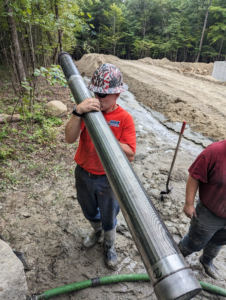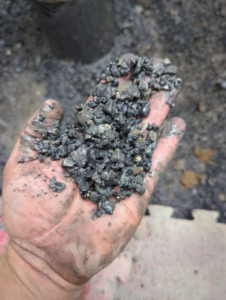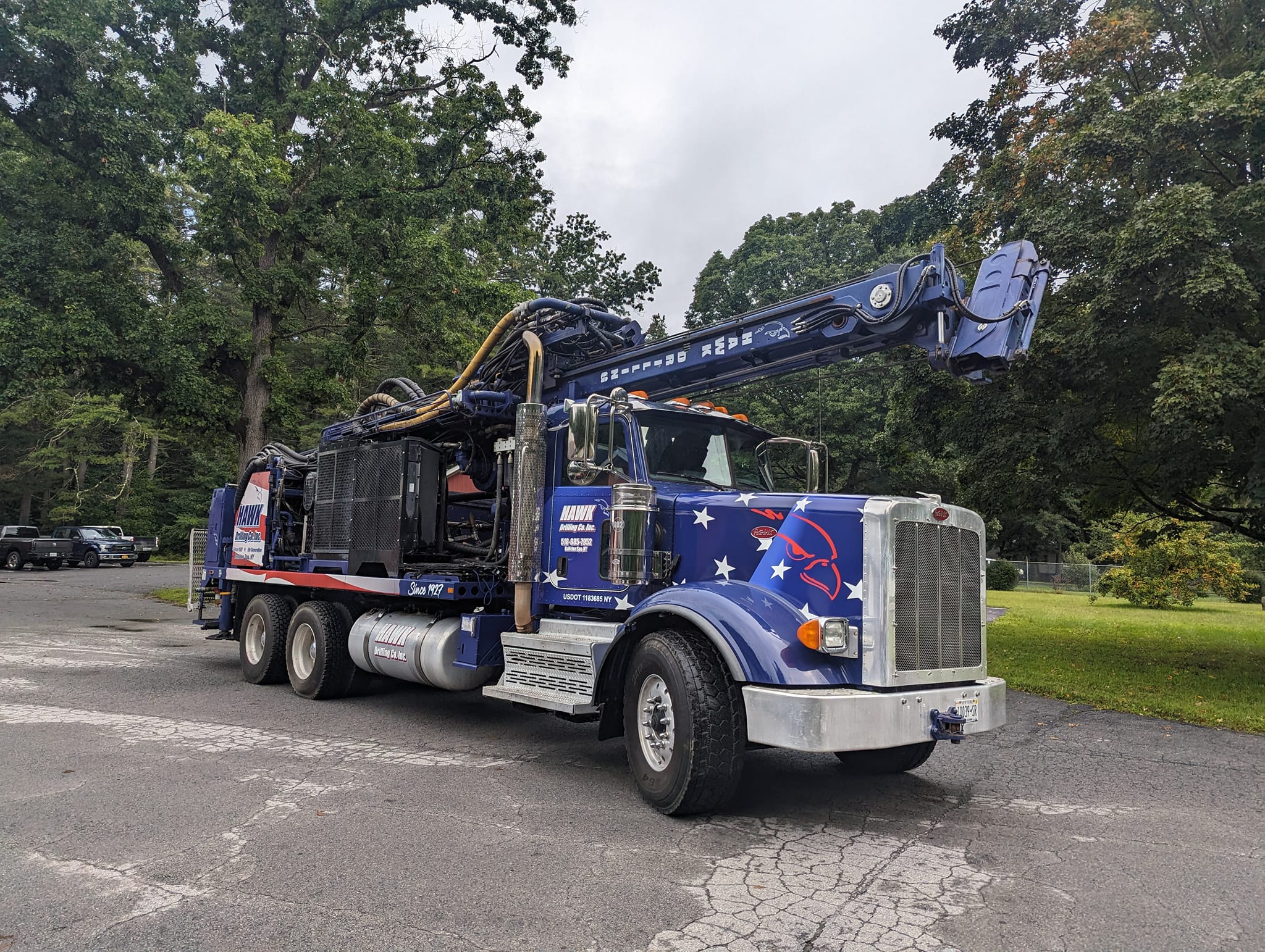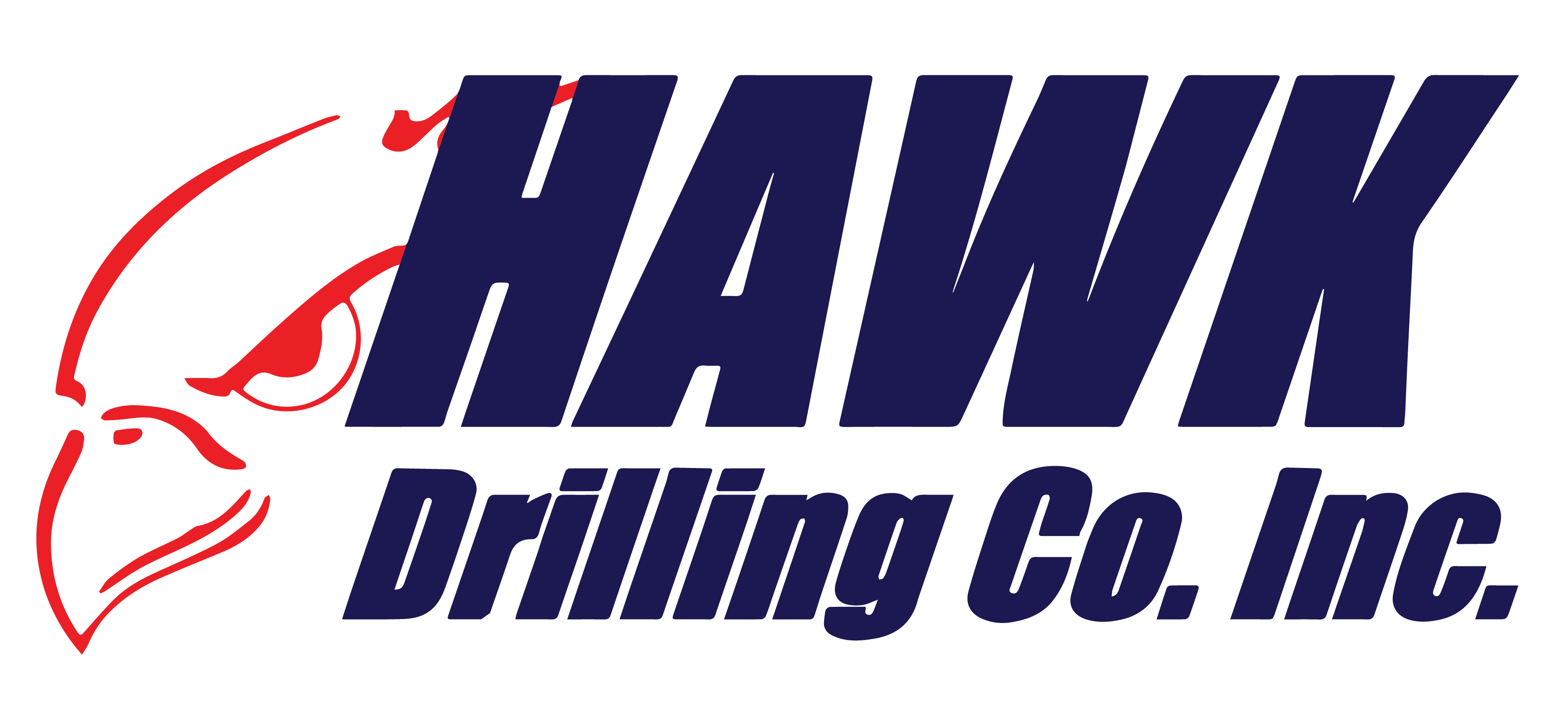Water Well Drilling
Well DrillingWater
Types of Drilled Wells …
Screen Wells:
A screen well is typically a shallower well (between 20 and 100′) deep with all steel casing down to a water-bearing sand and gravel area. These wells require careful documentation of geologic conditions, proper collection of samples of the sand and gravel material, and a sieve analysis to determine the proper size slot screen or screens. Proper sizing and development of the well are critical to their success. You should not have sand in your water – this is the result of inadequate development of the screen well. Note: Installation of a screen well is a dying knowledge and many companies no longer install these.
Here is an example of a large slot sized screenable water-bearing area.


Gravel Wells:
Gravel wells are finished just above the bedrock where there may be a layer of water-bearing gravel (broken down bedrock). They require casing down to the water-bearing area and then proper development to remove the sand and any fines. As with a screen well, a poorly developed gravel well will bring sand into the house.
Bedrock Wells:
In areas where there is no water above the bedrock, a minimum of 20′ of casing is installed (per NYS Dept. of Health regulations) to reach the competent bedrock. In some areas, the bedrock is significantly deeper than 20′, requiring larger amounts of casing. Once the casing is properly set into the bedrock, the driller begins drilling through the rock looking for evidence of water-bearing areas; and fractures of water that run through the rock. In some cases, there are very large fractures with yields of greater than 100 GPM. In other areas, the yield may be very low, requiring other interventions, such as hydrofracturing. A competent driller takes their time and is always looking for evidence of water-bearing areas, which include quartz seams in the rock, and checking well yields frequently while drilling.
What You Should Know About Wells
Well drilling is a very specialized skill. The driller must be knowledgeable in hydrology, geology, hydraulics of wells, well construction techniques, drilling methods, geophysical instrumentation, and have knowledge of state building, electrical, and plumbing codes.
Before you buy a piece of property or a new home, EDUCATE yourself thoroughly about your most valuable investment: your water. Ask yourself the following questions:
- What type of formation will my well be drilled in? Where will the water come from? Water is found in sand, Gravel or bedrock formations.
- How much casing will be installed in my well? Will the casing be grouted? The casing keeps the hole open in unconsolidated formations. Sufficient casing, grouting and a drive shoe protects your water against surface contaminants.
- What type of pump will be installed in my well? You will have either a submersible pump located in the bottom of your drilled well or a jet pump on your water supply generally located in the basement.
- How will my house be pressurized? The tank located in your basement allows your pump run time and has a pressure switch which tells the pump when to come on and shut off so you always have water.
- What is the general water quality in the area? Ground water contains varying amounts of naturally occurring chemicals and compounds (e.g.. hydrogen sulfide and calcium carbonate).
- How much water can I reasonably expect? Water flow is determined in gallons per minute. Before drilling, know how much water you will need for your household.

Water Quantity and Quality
No one can guarantee how much water you are going to get or the quality of that water. Be wary of individuals making promises. Well drilling is a science and the results depend on the geology and skill of the driller constructing your well. Every well is different, even two wells that are side by side may not be exactly the same.
Knowledge and communication are key to a positive drilling experience. You, the homeowner, are an important team member when your well is being drilled. You need to be available to make decisions based on information and recommendations made to you by your driller.
